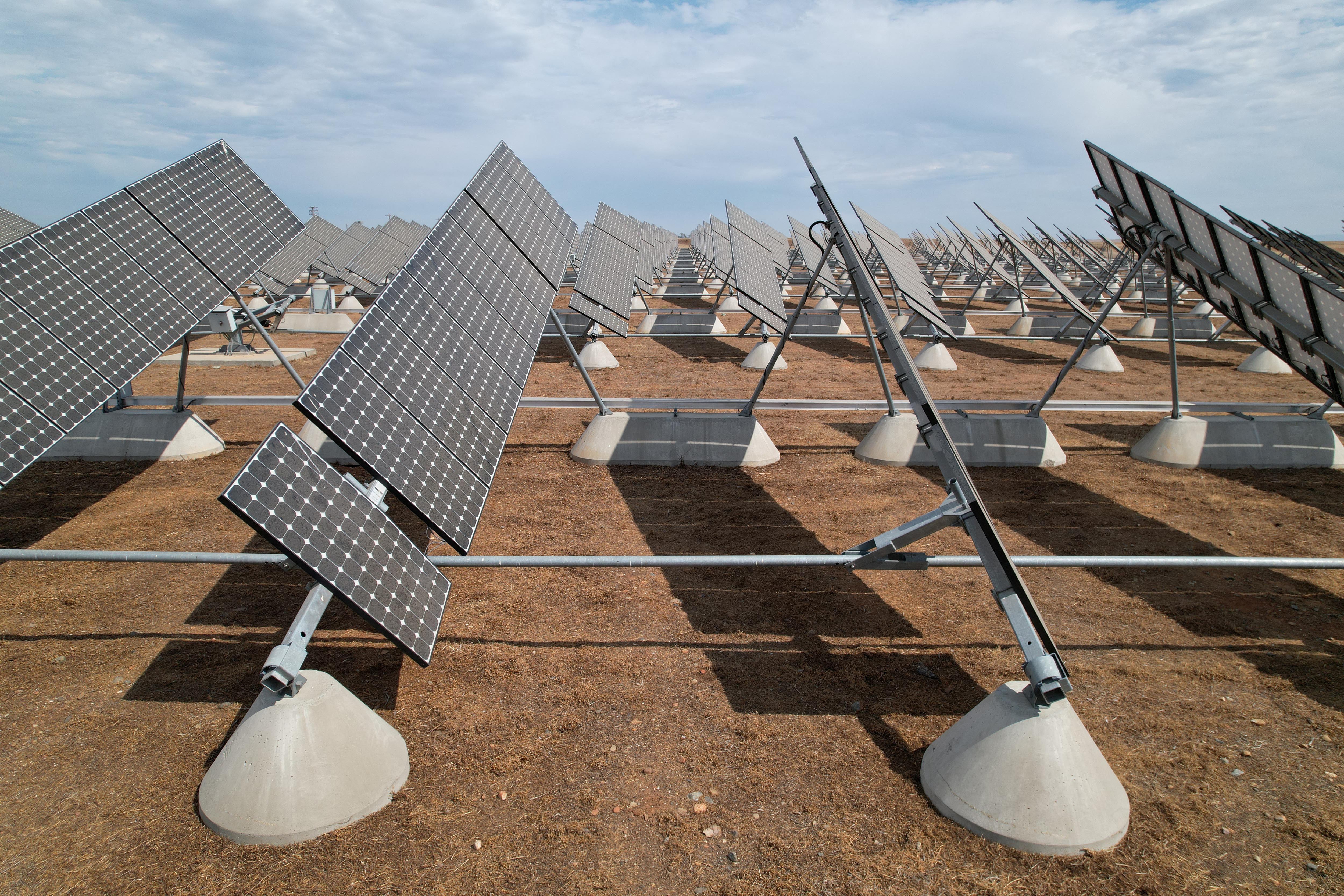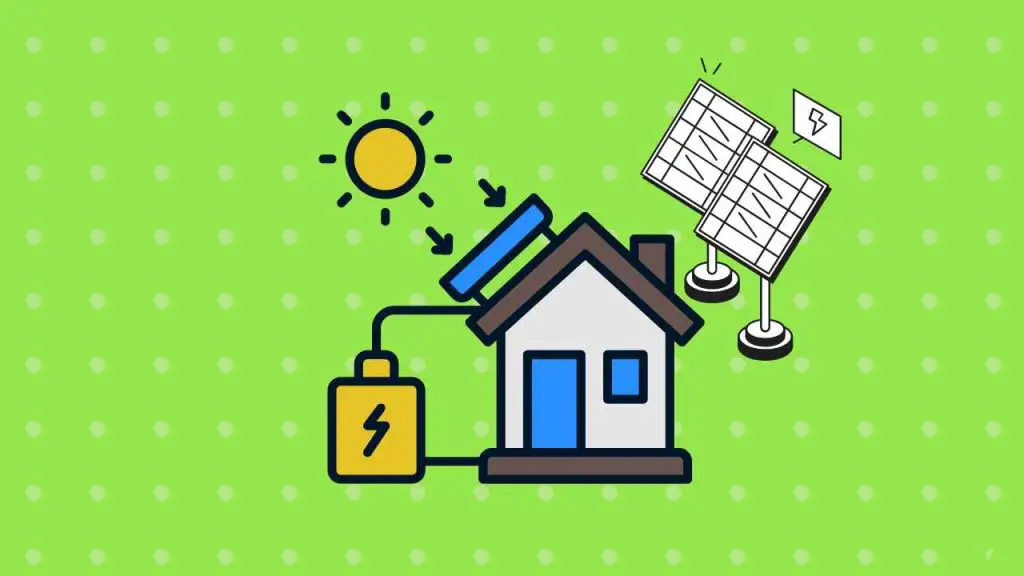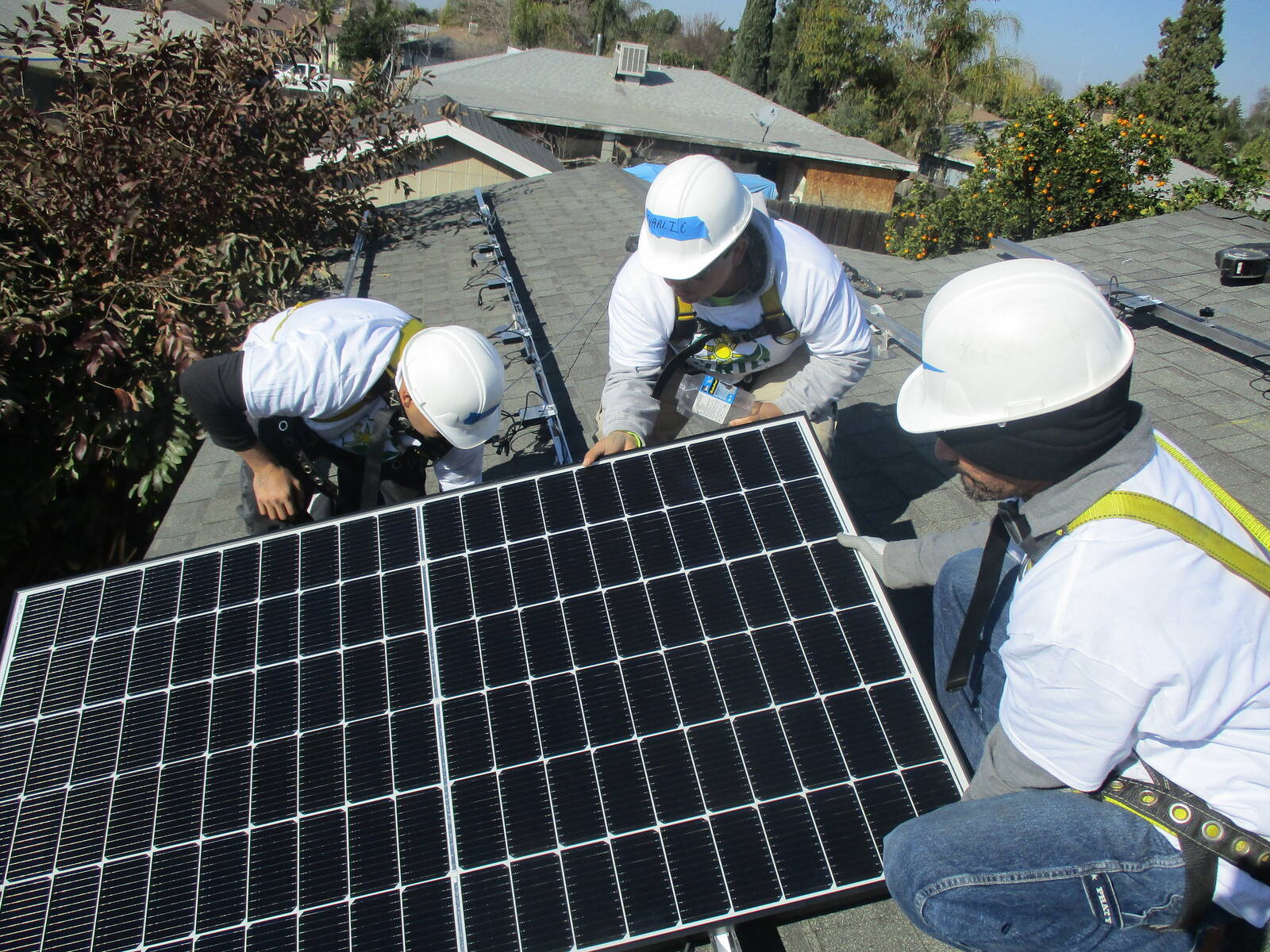Yes, off-grid solar is legal in california. The state government permits residents to install such systems to generate their electricity.
California, as a state, is very supportive of renewable energy. The government encourages its citizens to install solar panels on their roofs, to make california a better place to live.
Solar panels can help to reduce carbon footprints by generating power from the sunlight.
With the abundance of sunshine in most parts of california, it makes it an excellent location to install solar panels, either off-grid or on-grid.
Californians are no longer solely reliant on utilities for power as off-grid solar systems can make any residential property independent of the grid.
Off-grid solar systems consist of solar panels, batteries and converters that convert the sun’s energy into usable power.

Credit: www.reuters.com
What Is Off-Grid Solar?
Off-grid solar is a sustainable way of generating electricity for your homes or businesses independently.

With increasing concerns about the negative impacts of fossil fuels and the effects of climate change, many californians are choosing to go off the grid and explore alternative energy options.
Before we dive into the legal aspects of off-grid solar in california, let’s define what off-grid solar is and how it differs from grid-tied solar. What do you think is living off the grid illegal in California? After reading this article just comment down below what you think.
Define What Off-Grid Solar Is And How It Differs From Grid-Tied Solar
Off-grid solar is a self-sufficient energy system that does not rely on the power grid to supply electricity. In contrast, grid-tied solar refers to a solar energy system that is still connected to the grid and allows for the excess energy produced to be sold back to the utility company.
Here are some key differences between the two systems:
- Off-grid solar systems require battery backup to store excess energy, whereas grid-tied systems do not.
- Off-grid solar systems need to be designed to meet all of a household’s energy needs, whereas grid-tied systems may not.
- Off-grid solar systems are not eligible for net metering, whereas grid-tied systems are.
Benefits And Drawbacks Of Off-Grid Solar Systems
Off-grid solar has many benefits, such as energy independence, long-term cost savings, and reduced carbon footprint. However, there are also some drawbacks to consider before making this major investment.
Here are some benefits and drawbacks of off-grid solar systems:
Benefits
- Energy independence: You are not reliant on the grid to power your home.
- Long-term cost savings: The investment in an off-grid solar system pays for itself over time through decreased dependence on utility companies.
- Reduced carbon footprint: Off-grid solar systems do not rely on fossil fuels for energy production, making them a sustainable and environmentally friendly energy source.
Drawbacks
- High upfront costs: Off-grid solar systems require a significant investment upfront, including the cost of solar panels, batteries, and installation.
- Maintenance and troubleshooting: Off-grid solar systems require regular maintenance and occasional troubleshooting by a professional.
- Limited energy availability: Off-grid solar systems can be affected by weather and seasonal changes, impacting the amount of energy available.
Off-grid solar systems are becoming a popular option for those looking to take control of their energy needs. Before investing in an off-grid solar system, it is important to consider the benefits and drawbacks carefully. Understanding your rights as an off-grid solar system owner in california is equally essential.
Legal Considerations For Off-Grid Solar In California

As the demand for energy-efficient and cost-effective means of obtaining electricity increases, more californians turn to off-grid solar systems to meet their energy needs. California, a state known for its strict regulations, has set up several laws governing off-grid solar installations.
Here are some legal considerations you need to take into account when installing an off-grid solar system in california.
State Laws And Regulations Regarding Off-Grid Solar In California
Before installing an off-grid solar system, it is crucial to understand the various laws and regulations surrounding such installations in california. Here are some of the essential legal considerations:
- All off-grid solar systems in california are required to comply with the state’s electrical and safety codes.
- A licensed professional must install all off-grid solar systems in california. Installing an off-grid solar system without a license is illegal.
- California law requires that all off-grid solar systems should be inspected before and after installation to ensure compliance with safety codes.
Zoning Laws, Building Codes, And Permits Required For Off-Grid Solar In California
Zoning laws and building codes are essential considerations for those planning to install off-grid solar systems. Here are some zoning laws, building codes, and permits required for off-grid solar in california:
- The california environmental quality act (ceqa) mandates that all off-grid solar systems must comply with environmental regulations.
- Zoning laws in california regulate the type and size of off-grid solar systems one can install. Ensure that you comply with these laws before installing an off-grid solar system.
- You will require a building permit to install an off-grid solar system in california. Building permits ensure that your off-grid solar system complies with building codes.
Federal Tax Credits And Incentives For Off-Grid Solar Systems
The federal government has various incentives for off-grid solar systems to encourage more people to switch to renewable energy. Here are some federal tax credits and incentives for off-grid solar systems:
- The federal government offers a 26% tax credit on the cost of installing an off-grid solar system.
- The renewable energy for america program (reap) offers grants and loans to farmers and small business owners installing off-grid solar systems.
California has strict laws and regulations governing off-grid solar installations. Ensure that you comply with these and all other legal considerations when installing an off-grid solar system. By doing so, not only will you be avoiding legal trouble, but you will also be making a significant contribution to the state’s efforts towards a clean, energy-efficient future.
Your Right To Install Off-Grid Solar In California
Is Off-Grid Solar Legal In California? Know Your Rights!
Homeowner’S Rights To Install Off-Grid Solar Systems In California

California Law Protects Homeowners’ Rights To Install Off-Grid Solar Energy Systems
As a homeowner in california, you have the right to install solar panels on your property, even if you live off the grid. California law governs the rules, regulations, and permits required to install an off-grid solar energy system.
No Visas Or Permits Required To Go Off-Grid With Solar
You do not need a permit or a visa to go solar off-grid in california. This solar-friendly state allows homeowners to install photovoltaic (pv) systems and connect them to the grid, qualify for net metering, or disconnect altogether.
Protecting Your Right To Go Solar
California’s solar rights act protects your right to generate your electricity by whatever means you see fit. The act provides clear protections for homeowners who choose to go solar, including the right to install systems, the right to generate, and the right to interconnect to the grid.
Legal protections and defenses for homeowners facing challenges to their off-grid solar systems
Homeowners Unfairly Challenged By Utilities Or Homeowner Associations
If you are a homeowner in california that has installed an off-grid solar panel, you may face challenges from utilities or homeowner associations (hoas). Homeowners have the right to request that hoas should waive the rules to install solar panel systems.
Understanding The Solar Shade Control Act And The Solar Rights Act
The state solar shade control act and the solar rights act can be helpful to homeowners who face challenges in installing solar panels.
Consult With A Knowledgeable California Solar Attorney
If you face more challenges or have concerns about the legality of your off-grid solar system, consult with a knowledgeable california solar attorney. Ensure your rights are protected and your solar panel system is legal and functioning correctly.
Resolving disputes with the local government, utility companies, or homeowners’ associations
Contacting Your Local Solar Cooperative
As a california homeowner, you have access to a growing network of solar energy cooperatives. Cooperatives can assist in resolving conflicts with government agencies, utilities, or other entities regarding off-grid solar systems.
Utilizing State’S Resources To Resolve Disputes
The california energy commission and the california public utilities commission are two resources for conflict resolution between alternative energy providers and utility companies. The california state energy program offers innovative solutions to support sustainable and energy-efficient practices.
Negotiating With Your Homeowners’ Association
You have the right to negotiate hoas and reach agreements on the installation and use of off-grid solar systems. Take the time to educate yourself, your community, and the association’s governing board members.
California homeowners have the right to install solar panels on their property, even if they live off the grid. The solar rights act provides protection for homeowners who choose to go solar, while the state’s resources offer solutions to conflict resolution with government agencies, utilities, or other entities.
Consult with a knowledgeable california attorney if you face challenges setting up an off-grid solar system.
Solar Industry Developments And Future Outlook
Is Off-Grid Solar Legal In California? Know Your Rights!
The solar industry in california is fast evolving, with emerging technologies, liberal-policy implementation, and its push towards renewable and sustainable energy solutions. However, when it comes to off-grid solar panels, many people aren’t even aware of their rights in california.
Here, we discuss some crucial issues and opportunities in off-grid solar power in california.
Emerging Technologies In Off-Grid Solar And Their Impact On Regulation And Policy:
With california’s ambitious net-zero energy targets, innovative and affordable technologies are being introduced regularly. Below are some emerging technologies in off-grid solar and their potential impact on policy and regulation in california:
- Dc power optimizers: It optimizes the amount of energy produced by each solar panel.
- Lithium-ion batteries: Allows more prolonged energy storage and better energy management.
- Solar trackers: Allows the panels to track the sun to optimize the energy intake.
- Virtual net metering: This legal and technical innovation lets solar customers allocate excess energy to off-site properties.
The Future Of Off-Grid Solar In California – Opportunities And Challenges:
The future of solar panels off the grid remains uncertain. Although recent legislative changes suggest a more welcoming atmosphere for alternative energy, there remain challenges unique to off-grid installations.
Opportunities:
- The increased demand for electric vehicles creates another market in which off-grid solar systems can be employed and optimized.
- Large-scale sustainable projects, like microgrids, wildfire mitigation, and power resilience, will benefit from off-grid solar solutions.
- Alternatives to traditional utilities through microgrids and community solar projects.
Challenges:
- A lack of legislation governing off-grid solar systems, leading to property rights violations, utility regulation violations, and environmental concerns.
- Utility companies argue that grid defection through off-grid solar systems complications their ability to provide power to their customers.
Off-grid solar power provides sustainable energy solutions. With the emergence of innovative technologies coupled with the state’s ambitious legislation, off-grid solar panels have the potential to play a crucial role in california’s energy conservation efforts. Balancing the opportunities and challenges are critical in ensuring the successful adoption of off-grid solar panels.
Frequently Asked Questions For Is Off-Grid Solar Legal In California?
Is Off-Grid Solar Legal In California?
Yes, it’s legal to install off-grid solar systems in california. However, homeowners must meet safety and environmental regulations and obtain proper permits before installing an off-grid solar system.
Do I Need To Obtain Permits To Install An Off-Grid Solar System?
Yes, homeowners must obtain appropriate permits from their county or city, depending on the location. Some areas may have additional zoning regulations that must be met.
What Safety Regulations Should I Adhere To When Installing An Off-Grid Solar System?
Homeowners should follow all safety guidelines and regulations in the california electrical code and national electrical code. There are also specific requirements for battery storage and inverters.
How Will An Off-Grid Solar System Affect My Property Value?
In most cases, installing an off-grid solar system will increase the value of your property. Off-grid systems can provide energy security and reduce utility costs, making them attractive to buyers.
Can I Still Be Connected To The Grid With An Off-Grid Solar System Installed?
Yes, homeowners can choose to keep their grid connection as a backup option for their off-grid solar system. This is known as a hybrid system, allowing homeowners to switch between off-grid and grid-tied electricity.
Conclusion
Off-grid solar is legal in california with the proper permits and approvals from local governments. It is an exciting and environmentally conscious option for individuals looking to live off the grid or reduce their dependence on traditional power sources.
Although it may require more effort and investment upfront, the benefits in the long run, including cost savings and energy independence, cannot be ignored.
It is important to conduct thorough research and ensure compliance with all regulations and guidelines before embarking on an off-grid solar project.
With california’s commitment to renewable energy sources and reducing carbon emissions, it is likely that off-grid solar will continue to be encouraged and supported in the years to come.
So, if you are considering off-grid solar for your home or property, don’t hesitate to explore the options and take advantage of this innovative and sustainable energy solution. I hope you got the idea that is living off the grid illegal in California or not and Is Off-Grid Solar Legal in California.

“My name is Leo Jacob, and I hold a Bachelor of Science degree with Honors in Applied Environmental Science and Sustainability from the University of the West of Scotland. Since childhood, I’ve been passionate about living an eco-friendly life. After completing my studies, I dedicated myself to finding simple ways to lead a more environmentally conscious lifestyle. I launched ecolifely.com to share my educational background and practical experiences with everyone, hoping to inspire others to join me in creating a greener, more sustainable world.”













Leave a Reply